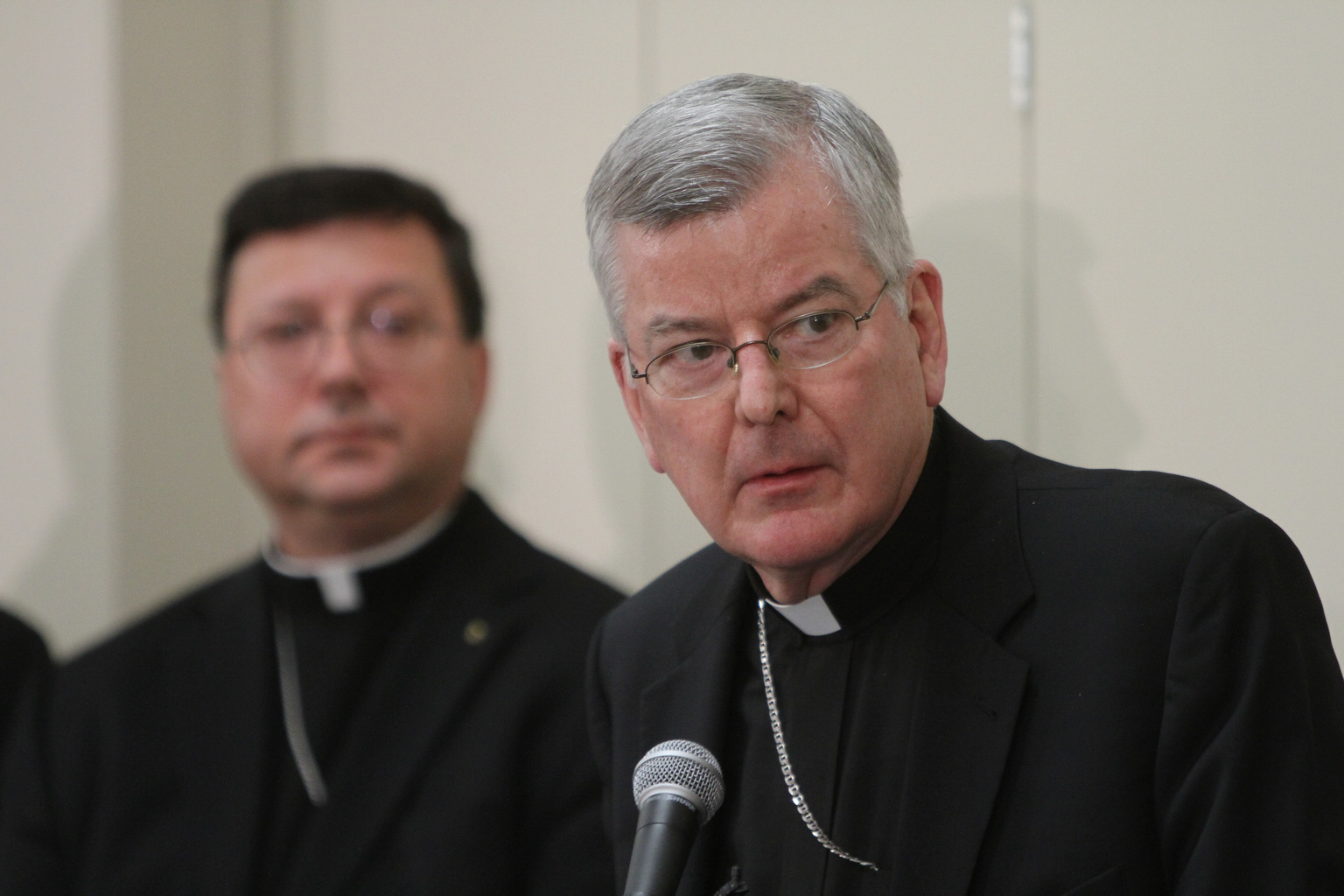
By Christopher White, The Tablet’s National Correspondent
NEW YORK – Just one week after Archbishop John Nienstedt served as a concelebrant for the funeral mass of Bishop Robert Morlino of Madison, Wisconsin, Archbishop Nienstedt’s successor issued a letter on Friday stating that he is unable to exercise public ministry in the archdiocese of Saint Paul-Minneapolis until allegations surrounding him are resolved.
In June 2015, Archbishop Nienstedt resigned under fire following a turbulent in-house archdiocesan investigation into claims of sexual misconduct with adult males and just ten days after prosecutors brought charges against the archdiocese for its “failure to protect children.”
Since his resignation, Archbishop Nienstedt has kept an active public ministry, most notably serving as a contractor for the Napa Institute, a California-based organization founded by Tim Busch, a prominent Catholic conservative, whose annual summer conference brings together several hundred wealthy Catholic philanthropists and high-ranking Catholic prelates at his Napa Valley resort.
In August, Napa announced that Archbishop Nienstedt had “stepped aside” of his involvement with the program as the Institute sought to promote “a faithful lay-led reform” of the Church as it faces a mounting clerical sexual abuse crisis.
Archbishop Bernard Hebda in a letter on Friday said “The Archdiocesan Ministerial Review Board has recently recommended that I publicly clarify that Archbishop Nienstedt, like any priest facing similar allegations, would not be free to exercise public ministry in this Archdiocese until all open allegations are resolved. I concur.”
In 2014, Archbishop Nienstedt ordered his senior auxiliary bishop investigate claims against him, which he did with the support of two outside law firms. The findings from that investigation were turned over to then papal nuncio to the United States, Archbishop Carlo Maria Viganò, and according to Father Dan Griffith, who served as the archdiocese’s Safe Environment coordinator at the time, Archbishop Viganò brought a halt to the investigation, even ordering evidence in the case to be destroyed.
Archbishop Nienstedt has consistently maintained his innocence and denied that he intervened in the investigation.
In August of this year, Archbishop Viganò issued an 11-page testimonial against Pope Francis charging him with mishandling sexual abuse cases, including that of former Archbishop Theodore McCarrick, and called on him to resign.
As The Tablet reported in August, Cardinal Sean O’Malley, who heads the Pontifical Commission for the Protection of Minors, intervened during the investigation into Archbishop Nienstedt at the request of those handling it and even directly petitioned Francis to accept Archbishop Neinstedt’s resignation.
In his letter, Archbishop Hebda noted that he was “troubled” that the investigation “remains unresolved for the accusers, for Archbishop Nienstedt and for the public.”
Archbishop Hebda’s letter comes at a time when the U.S. bishops and the entire Catholic Church is seeking to enact greater measures for the accountability of bishops in handling clerical sexual abuse cases.
During the annual meeting of the in Baltimore last month, plans to vote on a new standard of conduct and new protocols for bishop accountability were delayed at the request of the Holy See until after a February meeting at the Vatican where Pope Francis has called the heads of every bishops’ conference around the world to Rome to address the issue of clerical sexual abuse.
“I share the disappointment of many that more progress has not been made at the national and international levels to address bishop accountability. It is my prayer and hope that the February meeting Pope Francis is convening with bishops from around the world produces tangible results,” Archbishop Hebda wrote.
“We need a review board at the national or regional level – similar to our local Ministerial Review Board – with the authority and credibility to address allegations of misconduct against bishops and make fitness-for-ministry recommendations to the Holy Father,” he concluded.
